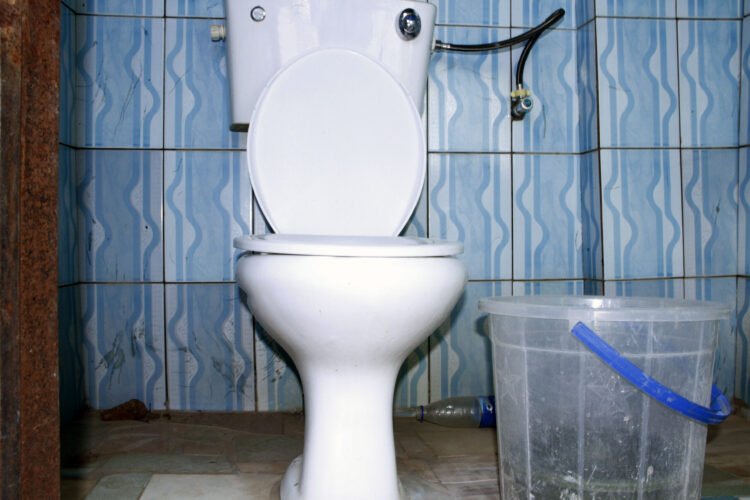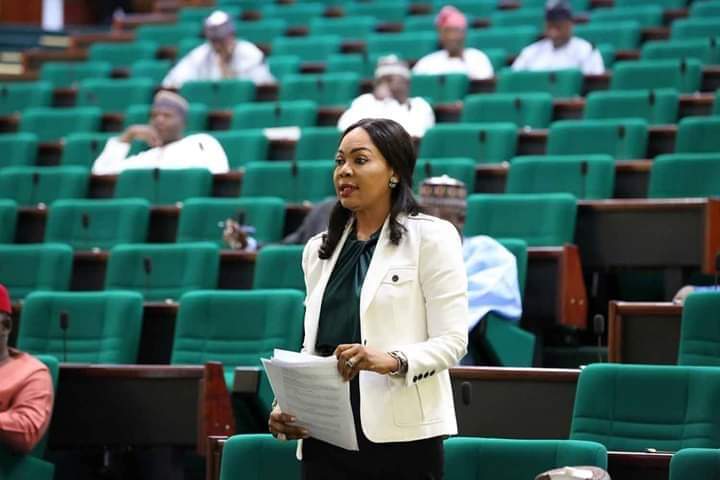BY BUKOLA AFENI
To achieve sustainable development goals, hygiene and sanitation issues need to be given top priority by every state and national leader. It is important to ensure that all Nigerians have access to good toilets to enhance good hygiene and sanitation which are critical to the attainment of sustainable development goals.
The World Toilet Day celebration usually occurs on November 19, and it’s a day set aside by the United Nations to create awareness about the provision of toilets in public places.
The theme of the World Toilet Day 2022 campaign is called “making the invisible visible” and it focuses on the impact of the sanitation crisis on groundwater. It also highlights how inadequate sanitation systems spread human waste into rivers, lakes and soil, thereby polluting underground water resources.
Advertisement
Chizoma Opara, the coordinator of the Clean Nigeria Campaign, said sensitisation on the part of stakeholders and media will reduce open defecation in Nigeria.
She noted that many people still see open defecation as a normal occurrence.
“Some of the challenges being faced which results in the annual death record is due to ignorance on the effect of open defecation and lack of access to basic sanitation and hygiene facilities”, she said.
Advertisement
“They understood the need to own a toilet, and have made personal efforts to stop the practice. Such people are now open-defecation-free because they now own and use toilets.”
Opara added that the lack of good toilets is responsible for a lot of disease outbreaks such as cholera, which is a result of the pollution of water bodies.
“Apart from the household toilets which is a huge challenge, anyone that owns a good toilet should also make a deliberate effort to ensure that it is properly maintained and cleaned at all times,” she said.
Opara also called on other states to ensure that they make the provision of the public toilet a priority.
Advertisement
“The federal capital territory is trying in this regard by providing public toilets across the city centre through Public Private Partnership. Through such arrangements, toilets are spinning up across the federal capital territory,” she said.
Yemi Pitan, the coordinator of Gem Hub Initiative, noted that open defecation is a public health issue,
“The health implication of open defecation is enormous and expensive. Not having a good toilet, promotes open defecation which is a public health issue. It causes diseases like diarrhoea; the second leading killer of children under 5,” she said.
“Every year, 151,700 children die due to poor-sanitation-induced-disease, which include cholera, dysentery, typhoid and other water-borne diseases. These are dangerously infectious diseases that would cost the state and nation huge resources (financial, human, and time) to control.”
Advertisement
She however urged all stakeholders in the public health sector to ensure that adequate investment is allocated towards reducing open defecation.
“All hands must be on deck to identify the economic aspect of funding public health, and it must be seen as an investment and not an expenditure. A threat to one is a threat to all. COVID-19 was an example, which every sector invested in to ensure that people are properly sensitised,” she said.
Advertisement
“The issue of open defecation should be seen from an aspect of collaboration, which will ginger the interest of both the private and public sectors. It is also important to promote value for money invested and also to ensure transparency and accountability in all processes of government.”
Pitan added that the private sector can collaborate with the government in raising public awareness of the risks of open defecation and the benefits of building toilets.
Advertisement
“Private sector at all levels; rural, urban, suburbs should provide quality services when it comes to access to toilets,” she said.
“The more the players in the private sector provide access to good toilet facilities, the higher the competition, which promotes the quality of services being rendered.”
Advertisement
She, however, mentioned that regulatory authorities, especially at the local government level, should ensure houses are built with good toilet facilities.
“The toilet in each house should be properly maintained and this must be done periodically. The government and philanthropists can provide more toilets in IDP camps, earmark funds for daily maintenance and assign people to ensure its cleanliness,” Pitan said.
Kabir Usman, a hygiene consultant in the FCT, said it is important for all states in the country to make provisions for building toilet facilities.
“The importance of building toilets in homes, markets, motor parks and public spaces cannot be overemphasized. Public toilets will aid in reducing open defecation and also improve sanitation in the country,” he said.
Usman, a WASH advocate who participated in the building of public conveniences in the FCT, said it is important to enlighten the public about the importance of reducing open defecation.
He noted that the government and private sector need to improve investment in sanitation and hygiene while safe and inclusive investment in toilet and hygiene facilities also help to prevent the spread of infectious diseases.
This article was produced with the support of Speak Up Africa Media Fellowship Program






